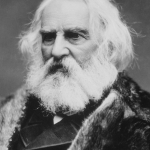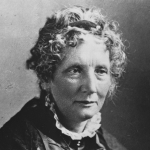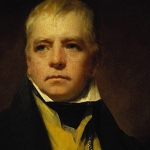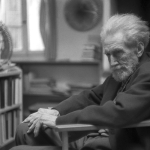Saint Augustine! well hast thou said,
That of our vices we can frame
A ladder, if we will but tread
Beneath our feet each deed of shame!
All common things, each day's events,
That with the hour begin and end,
Our pleasures and our discontents,
Are rounds by which we may ascend.
The low desire, the base design,
That makes another's virtues less;
The revel of the ruddy wine,
And all occasions of excess;
The longing for ignoble things;
The strife for triumph more than truth;
The hardening of the heart, that brings
Irreverence for the dreams of youth;
All thoughts of ill; all evil deeds,
That have their root in thoughts of ill;
Whatever hinders or impedes
The action of the nobler will; —
All these must first be trampled down
Beneath our feet, if we would gain
In the bright fields of fair renown
The right of eminent domain.
We have not wings, we cannot soar;
But we have feet to scale and climb
By slow degrees, by more and more,
The cloudy summits of our time.
The mighty pyramids of stone
That wedge-like cleave the desert airs,
When nearer seen, and better known,
Are but gigantic flights of stairs.
The distant mountains, that uprear
Their solid bastions to the skies,
Are crossed by pathways, that appear
As we to higher levels rise.
The heights by great men reached and kept
Were not attained by sudden flight,
But they, while their companions slept,
Were toiling upward in the night.
Standing on what too long we bore
With shoulders bent and downcast eyes,
We may discern — unseen before —
A path to higher destinies,
Nor deem the irrevocable Past
As wholly wasted, wholly vain,
If, rising on its wrecks, at last
To something nobler we attain.



















Comment form: